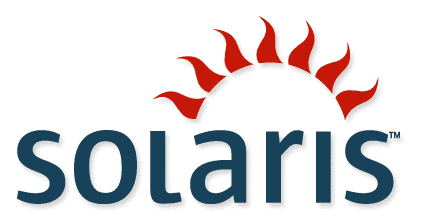
Solaris Express Resurrected
For those of you who have been following Solaris for a long time, it had started as an open source operating system, based upon BSD, merged with SVR4, Sun started the process of a re-write to open-source it again with the OpenSolaris project, controversially started an binary distribution also called OpenSolaris, and canceled Solaris Express program.
With the purchase of Sun by Oracle, the direction of the wind has changed. Solaris Express has been revived.
We will have a Solaris 11 binary distribution, called Solaris 11 Express, that will have a free developer RTU license, and an optional support plan.Sad Changes
Solaris 11 Express will debut by the end of this calendar year, and we will issue updates to it, leading to the full release of Solaris 11 in 2011.
On the sad side, the real-time feed of source code changes to the community will end, and binary distributions of OpenSolaris will also end.
We will not release any other binary distributions, such as nightly or bi-weekly builds of Solaris binaries, or an OpenSolaris 2010.05 or later distribution.Status Quo
On the bright side, source code will continue to be published, so existing down-stream OpenSource projects will be able to leverage it, much the same way Oracle works with RedHat's distribution of Linux today.
We will distribute updates to approved CDDL or other open source-licensed code following full releases of our enterprise Solaris operating system.Also, upstream contributions will continue to be accepted.
We will continue active open development, including upstream contributions, in specific areas that accelerate our overall Solaris goals.Acceptance as peers into the Solaris community (full access to real-time source code and contributions) will occur on case-by-case basis. This is really no difference from the existing community - not any yahoo off the internet could make changes to the source code.
Examples include our activities around Gnome and X11, IPS packaging, and our work to optimize ecosystems like Apache, OpenSSL, and Perl on Solaris.
We will have a technology partner program to permit our industry partners full access to the in-development Solaris source code through the Oracle Technology Network (OTN).The landscape has changing, things are returning to more of the way Sun used to be prior Jonathan Schwartz. It looks almost like a hybrid approach between Scott McNealy and Jonathyn on the software front.
This will include both early access to code and binaries, as well as contributions to us where that is appropriate.
Differences
Honestly, there is not that much of a difference, except competitors will not have access to new source code of Solaris as quickly to facilitate their copying. This has the potential to make Solaris a stronger competitor in the marketplace.
Instead of OpenSolaris competing with other binary distributions, it appears to become more of an example "gold disk"with mosts of the bugs worked out, with the source code for other derived contributions to base their work upon. If people are really serious about contributing, they still can, through a different web site.
Let's see how this hybrid development model works!
No comments:
Post a Comment